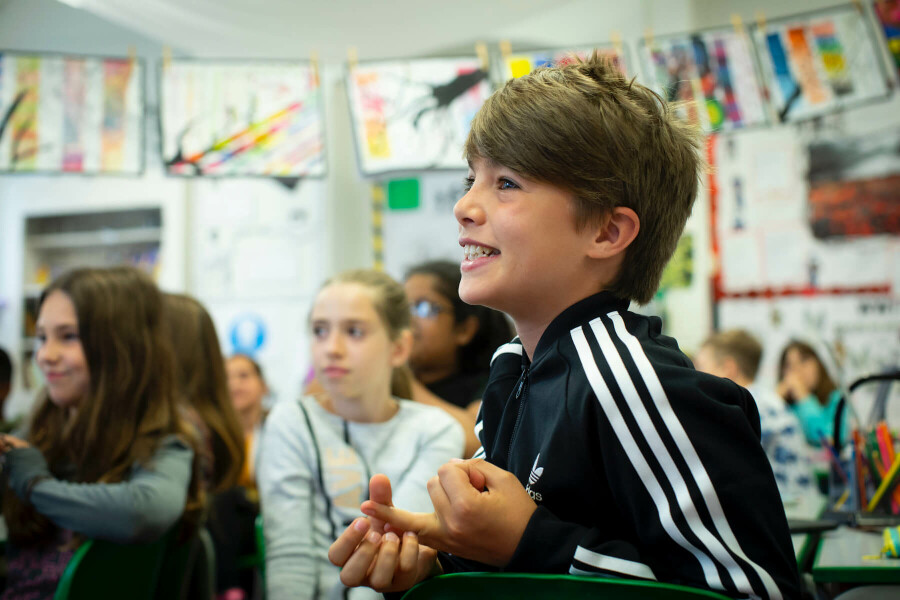Engaging with the news
Understanding how and why news is produced
Critically navigating the news
Empowering young people to report their own news stories


The NewsWise unit of work has been developed for upper primary pupils by a team of news literacy, primary English and PSHE specialists, working alongside journalists. The programme develops pupils’ critical literacy skills and their awareness of how the media impacts their own behaviour, identity and wellbeing, and also empowers young people to make their own voices heard, safely and responsibly.
The cross-curricular unit of work provides a three-week set of English and PSHE lessons comprising three themes:
Theme one: understanding the news
Theme two: navigating the news
Theme three: reporting the news
Each lesson addresses core objectives within the English, Literacy and Digital literacy curricula of all four nations of the UK, and the PSHE Association Programme of Study, integrating Statutory Guidance on Relationships and Health Education.
Being ‘news literate’ is taking an active interest in the wider world by understanding what news is, how and why it is produced, how to critically navigate news and find trustworthy information (and why that is important), and how to be empowered to share your own voice responsibly:
Engaging with the news
Understanding how and why news is produced
Critically navigating the news
Empowering young people to report their own news stories
The unit of work has been designed to allow for flexibility, so you can develop your own teaching inputs and adapt the lessons to meet the needs of your pupils.
Further notes and guidance for the activities can be found in the notes on the PowerPoint resources within each lesson.
Each lesson includes:
Clear, measurable learning objectives and outcomes
Baseline assessment opportunities and key questions to assess pupils’ learning
The core knowledge and skills linked to each objective
Learning activities and resources to enable pupils to develop and demonstrate their learning
Plenary suggestions to help measure progress and extend learning
As pupils work through the programme they enter the NewsWise ‘Journalist Training School’. Each lesson incorporates authentic skills from the newsroom. Our mission video and tips for creating a newsroom in your classroom as well as reporting real news stories with your class, help to build an exciting, real-life context for learning, culminating in them producing their own news reports about subjects that matter to them. Pupils can track their own progress using their training journals, before graduating as NewsWise journalists!
At the end of the NewsWise programme, you can use your students’ work to create excitement around your school and celebrate their achievements, as well as award them their NewsWise certificates! We have developed suggestions for celebrating success, based on great ideas we have seen from teachers we have worked with.
NewsWise encourages pupils to become familiar with how news is produced and interact with real news stories. It is important, therefore, that pupils are supported to handle any news stories they may come across, feel confident to talk about them and learn how to be sensitive to others when discussing or even producing news themselves.
See our guide, developed with the PSHE Association, on creating a safe learning environment.

When you get to the end of the NewsWise project, we invite you to reflect with your class on their experiences of the project. What did they enjoy? What have they learned?
You can collect their (and your!) reflections in this short feedback form.
All feedback you provide helps us to keep improving NewsWise.
Regularly discussing current news stories is a brilliant way for your pupils to continue to practise their news navigation skills and to engage with and understand the wider world. We maintain a list of child-friendly news sources, and our regular newsletter includes recent examples of real and fake news stories to use with your pupils.